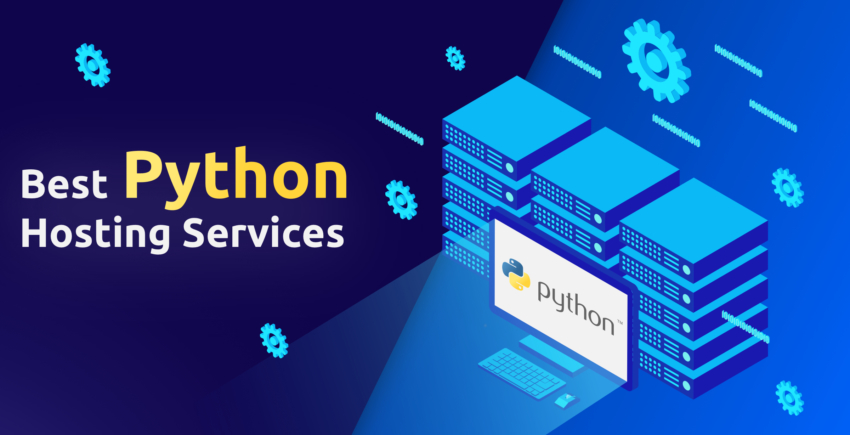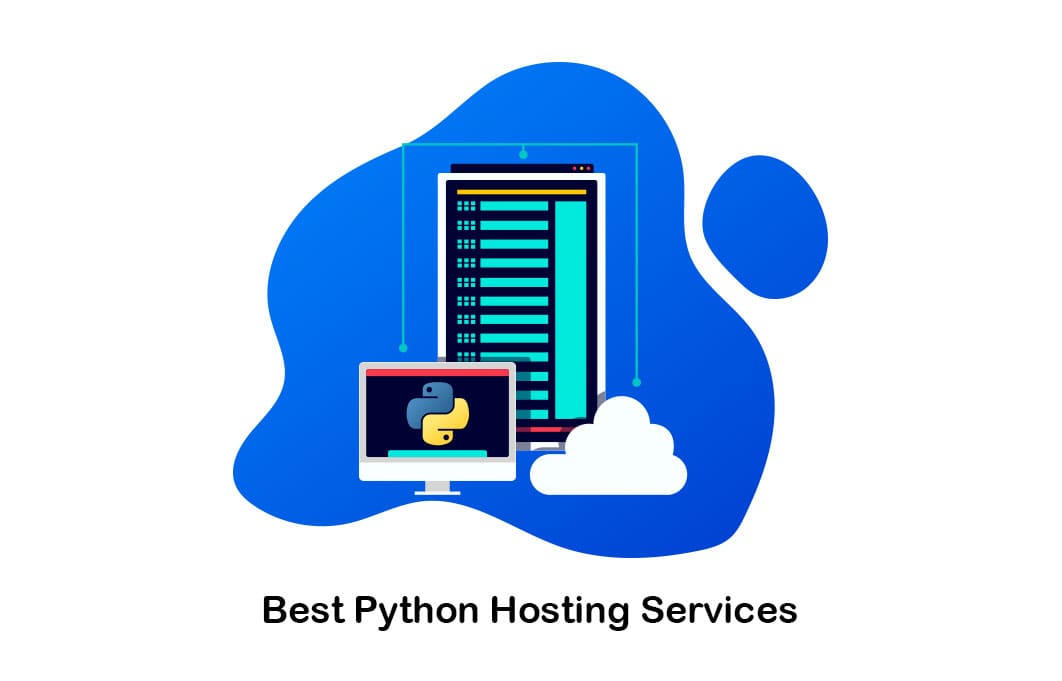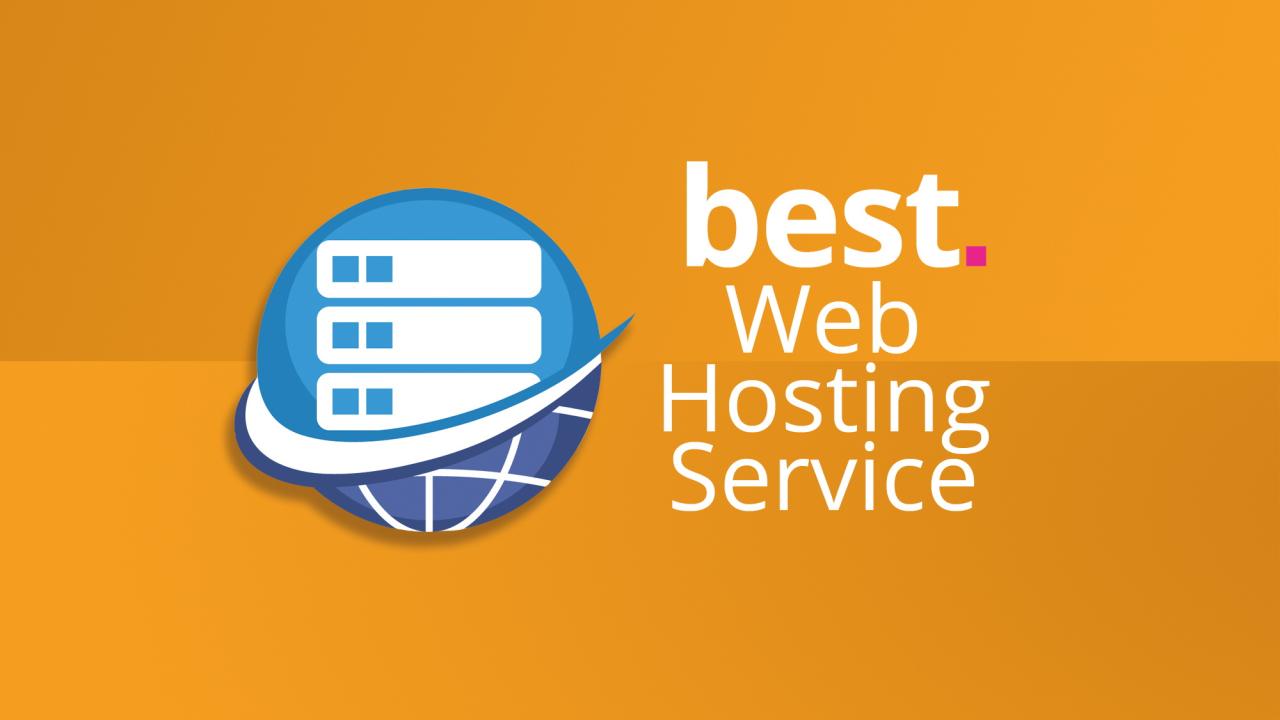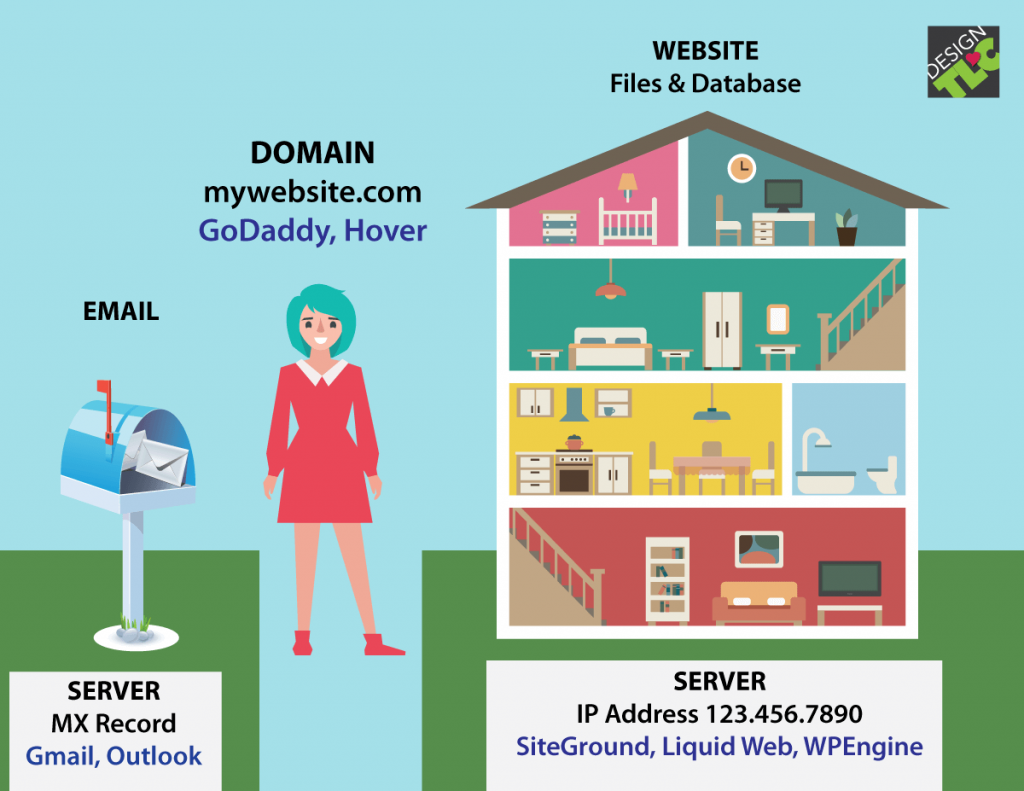Python Hosting is the foundation for running Python web applications, data science projects, and more. Choosing the right Python hosting solution is crucial for performance, scalability, and security.
This guide will explore the different types of Python hosting, key considerations when selecting a provider, popular hosting options, and how to set up and manage your Python applications effectively. We’ll also discuss the compatibility of popular Python frameworks like Django and Flask with different hosting providers.
Understanding Python Hosting
Python hosting refers to a specialized web hosting service tailored for running Python web applications. It provides a dedicated environment optimized for Python execution, ensuring seamless deployment and performance.
Key Features and Functionalities
Python hosting providers offer a range of features designed to streamline Python development and deployment.
- Python Versions: Support for various Python versions, including the latest releases, enabling developers to choose the optimal version for their project.
- Python Frameworks: Compatibility with popular Python frameworks such as Django, Flask, and Pyramid, facilitating the development and deployment of web applications.
- Databases: Integration with databases like MySQL, PostgreSQL, and MongoDB, allowing applications to store and retrieve data efficiently.
- Virtual Environments: Provision of isolated environments for each project, ensuring that dependencies and configurations do not conflict.
- Security: Enhanced security measures, including firewalls, intrusion detection systems, and regular security updates, to protect applications from vulnerabilities.
- Scalability: Options for scaling resources as needed, ensuring that applications can handle increasing traffic and data demands.
- Monitoring and Logging: Tools for monitoring application performance, identifying issues, and analyzing logs to troubleshoot problems.
Benefits of Dedicated Python Hosting
Dedicated Python hosting offers distinct advantages over general-purpose web hosting:
- Optimized Performance: Python hosting environments are specifically designed for Python execution, resulting in faster processing speeds and improved application performance.
- Enhanced Security: Python hosting providers often implement stricter security measures, reducing the risk of security breaches and data compromise.
- Simplified Deployment: Python hosting solutions typically include tools and features that simplify the deployment process, allowing developers to focus on application development.
- Dedicated Support: Python hosting providers offer specialized support for Python-related issues, providing assistance with configuration, troubleshooting, and other technical challenges.
Types of Python Hosting
Choosing the right Python hosting solution is crucial for your project’s success. The type of hosting you select will directly impact your website’s performance, security, and scalability. Let’s delve into the various types of Python hosting available and their respective advantages and disadvantages.
Shared Hosting
Shared hosting is the most budget-friendly option, where multiple websites share the same server resources. This means that your website’s performance can be affected by the activity of other websites on the same server.
- Advantages: Shared hosting is typically the most affordable option, making it suitable for small websites with low traffic volumes. It is also relatively easy to set up and manage, with many providers offering one-click installation for popular Python frameworks.
- Disadvantages: Shared hosting offers limited control over server resources, which can lead to performance issues if other websites on the server experience high traffic. Security can also be a concern, as a compromised website on the same server could potentially affect your website.
- Real-World Scenario: A personal blog or a small business website with low traffic volumes and a limited budget could benefit from shared hosting.
VPS Hosting
VPS (Virtual Private Server) hosting offers more resources and control than shared hosting. A VPS simulates a dedicated server by partitioning a physical server into multiple virtual servers, each with its own operating system and resources.
- Advantages: VPS hosting provides better performance and security than shared hosting, as you have dedicated resources and control over the server environment. You also have more flexibility in terms of software installation and configuration.
- Disadvantages: VPS hosting is more expensive than shared hosting, and managing a VPS server requires a certain level of technical expertise. You are responsible for server maintenance and security.
- Real-World Scenario: A growing business website with moderate traffic volumes or a website requiring specific software configurations could benefit from VPS hosting.
Dedicated Hosting
Dedicated hosting provides you with an entire physical server exclusively for your website. This offers the highest level of performance, security, and control, as you have full access to the server’s resources and configuration.
- Advantages: Dedicated hosting offers the best performance and security, as you have complete control over the server environment. It is also ideal for websites with high traffic volumes or complex applications.
- Disadvantages: Dedicated hosting is the most expensive option, and managing a dedicated server requires significant technical expertise. You are responsible for all aspects of server maintenance and security.
- Real-World Scenario: Large e-commerce websites, high-traffic blogs, or websites with demanding applications requiring dedicated resources and control could benefit from dedicated hosting.
Cloud Hosting
Cloud hosting utilizes a network of servers to provide scalable and flexible hosting solutions. Your website is hosted on a virtual server that can be scaled up or down based on your traffic needs.
- Advantages: Cloud hosting offers high scalability, allowing you to easily adjust your resources as your website grows. It also provides high availability and redundancy, ensuring your website remains online even if one server fails. You also benefit from automatic updates and maintenance, reducing the burden of server management.
- Disadvantages: Cloud hosting can be more expensive than traditional hosting options, especially if you require a large amount of resources. It also requires some familiarity with cloud technologies and concepts.
- Real-World Scenario: Websites with fluctuating traffic volumes, demanding applications, or a need for high availability and scalability could benefit from cloud hosting.
Containerized Hosting
Containerized hosting uses containers to package and run applications in isolated environments. Containers provide a lightweight and portable way to deploy and manage applications, ensuring consistency across different environments.
- Advantages: Containerized hosting offers increased portability, consistency, and efficiency. It allows for faster deployments and simplifies the management of complex applications.
- Disadvantages: Containerized hosting requires familiarity with containerization technologies and tools. It also requires a robust infrastructure to manage and scale containers effectively.
- Real-World Scenario: Websites using microservices architecture, complex applications with multiple dependencies, or those requiring frequent deployments and updates could benefit from containerized hosting.
Key Considerations for Choosing Python Hosting
Choosing the right Python hosting provider is crucial for the success of your web application. You need to carefully consider various factors to ensure that your website or application performs optimally, scales effectively, and remains secure.
Performance
Performance is a critical aspect of any web application, especially those built with Python. A slow-loading website can lead to a poor user experience and ultimately impact your business.
- Server Resources: The hosting provider should offer sufficient CPU, RAM, and storage to handle the workload of your application. Consider the number of concurrent users, the complexity of your code, and the size of your database.
- Server Location: Choose a server location that is close to your target audience to minimize latency and improve page load times. Consider using a Content Delivery Network (CDN) to distribute your content across multiple locations.
- Caching: Caching helps speed up your website by storing frequently accessed data in memory. Look for hosting providers that offer robust caching mechanisms.
Scalability
Your website or application should be able to handle increasing traffic and user demand. This is where scalability comes in.
- Scalability Options: The hosting provider should offer flexible scaling options, such as the ability to easily add more resources or upgrade to a higher tier plan as your needs grow.
- Load Balancing: Load balancing distributes traffic across multiple servers, ensuring that no single server becomes overloaded. A good hosting provider will offer load balancing features.
- Auto-Scaling: Auto-scaling automatically adjusts server resources based on real-time traffic patterns. This can help ensure optimal performance and prevent downtime during traffic spikes.
Security
Security is paramount for any web application. A compromised website can lead to data breaches, financial losses, and reputational damage.
- Firewalls and Intrusion Detection Systems (IDS): The hosting provider should have robust security measures in place, including firewalls and intrusion detection systems to protect your application from attacks.
- Regular Security Updates: The hosting provider should regularly update its servers and software to patch vulnerabilities and protect against emerging threats.
- Data Backup and Recovery: Data backups are essential for recovering from data loss due to accidents, disasters, or cyberattacks. The hosting provider should offer reliable backup and recovery services.
Support
Having reliable support is crucial, especially when you encounter technical issues or need assistance with your application.
- Availability and Responsiveness: The hosting provider should offer 24/7 support via multiple channels, such as phone, email, and live chat. Their response time should be quick and efficient.
- Technical Expertise: The support team should have a deep understanding of Python and the web hosting environment. They should be able to provide effective solutions to your technical problems.
- Documentation and Resources: The hosting provider should offer comprehensive documentation, tutorials, and other resources to help you manage your application.
Pricing
Pricing is a key consideration for any hosting provider. You need to find a provider that offers a competitive price without compromising on quality.
- Cost-Effectiveness: Compare the pricing plans of different providers and ensure that the features and resources offered justify the cost.
- Transparency: The pricing should be transparent and clearly Artikeld, with no hidden fees or charges.
- Flexible Payment Options: The hosting provider should offer flexible payment options, such as monthly, annual, or multi-year plans.
Features
Hosting providers offer various features that can enhance the functionality and performance of your Python application.
- Database Support: Choose a hosting provider that supports the database systems you need, such as MySQL, PostgreSQL, or MongoDB.
- Web Server Support: Ensure that the hosting provider supports the web server you need, such as Apache or Nginx.
- Development Tools: Some hosting providers offer development tools and features, such as Git integration, command-line access, and staging environments.
Checklist of Questions
Before choosing a Python hosting provider, it’s essential to ask the following questions:
- What are the server specifications and resources offered?
- What are the scalability options and how easy is it to scale my application?
- What security measures are in place to protect my website or application?
- What support options are available and what is the response time?
- What are the pricing plans and what features are included?
- What development tools and features are offered?
Popular Python Hosting Providers
Choosing the right Python hosting provider is crucial for ensuring your web application’s performance, security, and scalability. Several reputable providers cater specifically to Python developers, each offering unique features and benefits.
Popular Python Hosting Providers
Here’s a table highlighting some popular Python hosting providers, their key features, pricing, and target audience:
| Provider | Key Features | Pricing | Target Audience |
|---|---|---|---|
| AWS Elastic Beanstalk | Scalable, automated deployment, easy integration with other AWS services | Pay-as-you-go, based on resource usage | Developers looking for a flexible and scalable platform for deploying Python applications |
| Google App Engine | Fully managed platform, automatic scaling, global reach | Pay-as-you-go, based on resource usage | Developers seeking a reliable and scalable platform for deploying Python applications with global reach |
| Heroku | Easy deployment, built-in tools for managing databases and add-ons | Free tier available, paid plans for increased resources | Developers looking for a simple and easy-to-use platform for deploying Python applications |
| DigitalOcean | Virtual private servers (VPS), customizable configurations, flexible pricing | Starting from $5 per month | Developers seeking more control over their hosting environment and looking for cost-effective solutions |
| Linode | Virtual private servers (VPS), dedicated servers, affordable pricing | Starting from $5 per month | Developers seeking a reliable and affordable platform for deploying Python applications |
| PythonAnywhere | Web-based IDE, free tier available, shared hosting environment | Free tier available, paid plans for increased resources and features | Beginners and hobbyists looking for a simple and easy-to-use platform for learning and experimenting with Python |
Setting Up Python Hosting

The process of setting up Python hosting involves configuring the hosting environment, installing necessary dependencies, and deploying your application. This section will guide you through the steps involved in setting up your Python web application on a chosen hosting provider.
Preparing the Hosting Environment
The first step in setting up Python hosting is preparing the hosting environment. This involves choosing a hosting provider, selecting a suitable plan, and configuring the environment to meet the specific requirements of your Python application.
- Choosing a Hosting Provider: Select a hosting provider that offers Python support, such as shared hosting, VPS hosting, or cloud hosting. Consider factors like performance, security, scalability, and cost.
- Selecting a Hosting Plan: Choose a plan that aligns with your application’s resource needs. Factors to consider include disk space, bandwidth, CPU cores, and RAM.
- Configuring the Environment: Once you’ve chosen a plan, configure the hosting environment to support your Python application. This may involve setting up a virtual environment, installing Python and necessary dependencies, and configuring web server settings.
Installing Dependencies
After setting up the hosting environment, you need to install the necessary dependencies for your Python application. This typically involves using a package manager like pip to install the required libraries and modules.
- Using a Package Manager: Pip is the standard package manager for Python, used to install and manage Python packages. Use the command “pip install” followed by the package name to install a specific dependency.
- Creating a Requirements File: A requirements file (requirements.txt) lists all the dependencies your application needs. This file makes it easier to install dependencies on different environments, ensuring consistency.
- Installing Dependencies: Once you have a requirements file, use the command “pip install -r requirements.txt” to install all the listed dependencies.
Deploying the Application
Once the dependencies are installed, you can deploy your Python web application to the hosting environment. The deployment process may vary depending on the hosting provider and the chosen deployment method.
- Using FTP/SFTP: Upload your application files to the server using FTP or SFTP clients. Ensure the files are placed in the correct directory specified by your hosting provider.
- Using Git: If your application is version-controlled with Git, you can use Git to deploy your application. This method simplifies the deployment process and allows for easy updates and rollbacks.
- Using a Deployment Platform: Some hosting providers offer deployment platforms that simplify the process of deploying your application. These platforms often provide tools for automated deployment, version control, and other features.
Optimizing Performance and Security
Optimizing performance and security is crucial for any Python web application. You can take several steps during the setup process to improve your application’s performance and security.
- Caching: Implement caching mechanisms to reduce the load on your server and improve page load times. Popular caching solutions include Memcached, Redis, and Varnish.
- Code Optimization: Optimize your Python code for efficiency. This includes using efficient algorithms, minimizing database queries, and optimizing code for specific use cases.
- Security Measures: Implement security measures to protect your application from attacks. This includes using strong passwords, enabling HTTPS, and regularly updating software and dependencies.
Common Deployment Scenarios
Here are some common deployment scenarios for Python web applications:
- Static Websites: Static websites are typically hosted on a web server that serves HTML, CSS, and JavaScript files. Python can be used to generate these files or to create dynamic content that is then served as static files.
- Dynamic Websites: Dynamic websites use server-side scripting languages like Python to generate content on the fly. Python frameworks like Django and Flask are commonly used for developing dynamic websites.
- API Development: Python is widely used for developing APIs, which allow applications to communicate with each other. Frameworks like Flask and Django REST framework are popular choices for building APIs.
Managing Python Hosting
Managing a Python hosting environment effectively is crucial for ensuring your web application runs smoothly and securely. This involves a range of tasks that go beyond simply setting up the hosting platform.
Server Performance Monitoring
Monitoring server performance is vital for identifying potential issues before they impact your website’s availability and user experience. You can gain insights into CPU usage, memory consumption, disk space, and network traffic.
- Use monitoring tools: Tools like New Relic, Datadog, and Prometheus offer comprehensive monitoring capabilities. They provide real-time data and alerts for critical metrics, enabling proactive troubleshooting.
- Analyze server logs: Regularly examine server logs to identify error messages, performance bottlenecks, and security threats. Logs can reveal valuable insights into application behavior and help pinpoint issues.
- Implement performance testing: Conduct regular performance tests to simulate real-world user traffic and identify areas for improvement. This helps ensure your website can handle peak loads without compromising speed and responsiveness.
Database Management
Databases are essential for storing and managing application data. Efficient database management ensures data integrity, performance, and security.
- Optimize database queries: Inefficient queries can significantly impact performance. Analyze and optimize database queries to minimize execution time and improve overall speed.
- Regular backups: Implement regular database backups to protect your data from accidental deletion or hardware failures. Choose a reliable backup strategy and schedule backups frequently.
- Database security: Implement strong security measures for your database, including user access controls, data encryption, and regular security audits. This helps prevent unauthorized access and data breaches.
Software Updates
Keeping your software up-to-date is essential for security and performance. Regularly update Python, its libraries, and other software components to benefit from bug fixes, security patches, and performance enhancements.
- Use a package manager: Utilize a package manager like pip to manage Python packages and their dependencies. Package managers streamline the update process and ensure compatibility.
- Automate updates: Implement automated update processes to ensure timely updates without manual intervention. This reduces the risk of outdated software and vulnerabilities.
- Test updates: Always test updates in a staging environment before deploying them to production. This helps identify and resolve any compatibility issues before they affect live users.
Security
Security is paramount for any web application. Implementing robust security measures protects your website, data, and users from threats.
- Secure your server: Implement security measures like firewalls, intrusion detection systems (IDS), and regular security audits to protect your server from attacks.
- Secure your application: Secure your Python application by using secure coding practices, input validation, and output encoding to prevent vulnerabilities like SQL injection and cross-site scripting (XSS).
- Monitor for security threats: Regularly monitor for suspicious activity, unusual traffic patterns, and potential security breaches. Implement intrusion detection systems (IDS) to detect and respond to threats in real-time.
Tips for Efficient Management
- Use automation: Automate repetitive tasks like software updates, backups, and server monitoring to free up time and reduce errors.
- Documentation: Maintain comprehensive documentation of your hosting environment, including configuration settings, software versions, and security protocols. This helps with troubleshooting and knowledge transfer.
- Use a monitoring dashboard: Centralize monitoring data into a single dashboard for easy visibility and quick identification of issues.
Python Frameworks and Hosting

Python web frameworks simplify the development of web applications by providing a structured environment and tools for common tasks. Hosting providers offer various options to deploy and run these frameworks, each with its own strengths and limitations. Understanding the compatibility between popular Python frameworks and different hosting providers is crucial for choosing the right platform for your project.
Framework Compatibility and Hosting Requirements
The compatibility of Python frameworks with hosting providers depends on several factors, including the framework’s dependencies, the hosting provider’s supported technologies, and the configuration options available.
- Django: Django, a full-stack framework, is known for its robust features and emphasis on security. It often requires a database (such as PostgreSQL or MySQL) and a web server (like Apache or Nginx) to run effectively. Most hosting providers offer support for Django, either through their managed services or by allowing users to configure their own environments.
- Flask: Flask, a microframework, is highly flexible and suitable for smaller projects. It has minimal dependencies and can be deployed on various hosting platforms, including shared hosting, virtual private servers (VPS), and cloud platforms like AWS and Google Cloud.
- Pyramid: Pyramid, a flexible framework, offers a balance between features and control. It supports various database options and can be deployed on diverse hosting platforms. Its configuration options allow for customization and fine-grained control over application behavior.
Specific Framework Requirements and Configurations
Each Python framework has specific requirements and configurations that must be met for successful deployment.
- Django: Django applications typically require a database server, a web server, and a Python interpreter with the necessary libraries. The configuration process involves setting up database connections, configuring the web server, and specifying environment variables.
- Flask: Flask applications require a Python interpreter with the Flask library and its dependencies. They can be deployed on various hosting platforms, but configurations may vary depending on the chosen platform.
- Pyramid: Pyramid applications require a Python interpreter, a web server, and a database server. They can be configured using a variety of methods, including configuration files, environment variables, and the Pyramid configuration API.
Successful Deployment Examples
Numerous successful deployments of Python frameworks on various hosting platforms showcase the versatility and compatibility of these frameworks.
- Django: Popular websites like Instagram and Pinterest are built using Django, demonstrating its scalability and performance. These platforms are hosted on cloud platforms like AWS and Google Cloud, leveraging their infrastructure and resources.
- Flask: Websites like Reddit and LinkedIn use Flask for specific functionalities, showcasing its flexibility and integration capabilities. Flask applications are deployed on various platforms, including shared hosting, VPS, and cloud environments.
- Pyramid: Companies like Mozilla and Dropbox utilize Pyramid for their web applications, highlighting its adaptability and efficiency. These deployments often involve custom configurations and integrations with specific technologies.
Python Hosting for Specific Use Cases
Python’s versatility makes it suitable for various application types, and choosing the right hosting solution is crucial for optimal performance and scalability.
Web Development
Web development projects require reliable hosting that can handle web traffic and dynamic content generation. Here are factors to consider:
- Scalability: Choose a hosting provider that can scale with your project’s growth, allowing for increased traffic and resource allocation as needed.
- Performance: Look for hosting solutions that prioritize speed and efficiency, including fast server response times and optimized caching mechanisms.
- Security: Security is paramount for web applications. Ensure your hosting provider offers robust security features like firewalls, intrusion detection systems, and regular security updates.
Example Hosting Providers:
- Heroku: Popular for its ease of use and scalability, ideal for Python web apps.
- AWS Elastic Beanstalk: A managed platform that simplifies deployment and scaling of web applications.
- DigitalOcean: Offers flexible and affordable virtual private servers (VPS) for web development projects.
Data Science
Data science applications often involve intensive processing and storage of large datasets. Hosting solutions should prioritize these factors:
- Computational Power: Data science projects demand powerful servers with ample CPU and RAM to handle complex computations and analysis.
- Storage Capacity: Ensure your hosting provider offers sufficient storage space to accommodate your datasets and analytical results.
- Data Security: Data privacy and security are crucial in data science. Choose a provider with robust data encryption and access control measures.
Example Hosting Providers:
- Google Cloud Platform (GCP): Offers powerful data analytics tools and infrastructure, including BigQuery for data warehousing and AI Platform for machine learning.
- Amazon Web Services (AWS): Provides a wide range of data storage and processing services, including Amazon S3 for object storage and Amazon EMR for big data processing.
- Microsoft Azure: Offers data analytics services like Azure Synapse Analytics and Azure Machine Learning, designed for large-scale data processing.
Machine Learning, Python hosting
Machine learning applications require specialized hosting that can handle model training, inference, and deployment. Here are key considerations:
- GPU Acceleration: Training and deploying machine learning models can be accelerated significantly with GPUs. Choose a hosting provider that offers GPU instances.
- Framework Support: Ensure the hosting provider supports popular machine learning frameworks like TensorFlow, PyTorch, and scikit-learn.
- Model Deployment: Look for hosting solutions that simplify model deployment and provide tools for managing and monitoring models in production.
Example Hosting Providers:
- Google Cloud AI Platform: Provides managed services for training, deploying, and monitoring machine learning models.
- Amazon SageMaker: A fully managed machine learning service that simplifies model building, training, and deployment.
- Azure Machine Learning: Offers a comprehensive platform for building, deploying, and managing machine learning models in the cloud.
API Development
API development requires hosting that can handle API requests, manage authentication, and ensure security. Here are key considerations:
- API Gateway: Choose a hosting provider that offers an API gateway to manage API traffic, authentication, and rate limiting.
- Scalability: API hosting should be able to scale with increasing API requests and traffic volumes.
- Security: API security is crucial to protect sensitive data. Look for hosting solutions with robust security features like API key management, OAuth integration, and secure communication protocols.
Example Hosting Providers:
- AWS API Gateway: A fully managed service that handles API traffic, authentication, and authorization.
- Azure API Management: Provides a comprehensive platform for managing, securing, and publishing APIs.
- Google Cloud Endpoints: Offers a service for managing API traffic, authentication, and authorization, integrated with other GCP services.
Future Trends in Python Hosting
The landscape of Python hosting is constantly evolving, driven by advancements in cloud computing and the increasing demand for scalable and efficient solutions. Several emerging trends are poised to reshape the way Python applications are deployed and managed.
Serverless Computing
Serverless computing offers a compelling alternative to traditional server-based hosting by abstracting away the complexities of server management. Python developers can leverage serverless platforms to focus solely on writing code, allowing the platform to handle infrastructure provisioning, scaling, and maintenance.
- Reduced Operational Overhead: Serverless platforms eliminate the need for developers to manage servers, operating systems, and other infrastructure components. This significantly reduces operational overhead, allowing developers to focus on building and deploying applications more efficiently.
- Automatic Scaling: Serverless platforms automatically scale resources based on demand, ensuring optimal performance and cost efficiency. This eliminates the need for manual scaling and configuration, simplifying application management.
- Pay-as-you-go Pricing: Serverless platforms typically adopt a pay-as-you-go pricing model, charging only for the resources consumed. This can be cost-effective, especially for applications with fluctuating workloads.
Containerization
Containerization has emerged as a powerful approach to packaging and deploying applications, enabling portability and consistency across different environments. Python developers can utilize containers to encapsulate their applications and dependencies, ensuring seamless deployment and execution on various hosting platforms.
- Improved Portability: Containers allow applications to run consistently across different environments, regardless of the underlying operating system or infrastructure. This simplifies deployment and reduces compatibility issues.
- Enhanced Isolation: Containers provide a secure and isolated environment for applications, preventing conflicts and ensuring stability. This is particularly important for complex applications with multiple dependencies.
- Faster Deployment: Containerized applications can be deployed quickly and easily, as they are pre-configured with all necessary dependencies. This streamlines the deployment process and reduces downtime.
Edge Computing
Edge computing brings computation and data storage closer to users, reducing latency and improving responsiveness. This trend is particularly relevant for Python applications that require real-time data processing or low-latency interactions.
- Reduced Latency: Edge computing reduces the distance between users and applications, minimizing network latency and improving response times. This is crucial for applications that rely on real-time data or interactive experiences.
- Enhanced Scalability: Edge computing can distribute processing power across multiple locations, enabling applications to scale efficiently and handle increased workloads. This can be particularly beneficial for applications with geographically dispersed users.
- Improved Data Security: Edge computing can enhance data security by processing and storing sensitive information closer to users, reducing the risk of data breaches and unauthorized access.
Final Wrap-Up
Whether you’re a seasoned Python developer or just starting out, understanding the nuances of Python hosting is essential for building successful applications. By considering your specific needs and choosing the right hosting solution, you can ensure your Python projects perform optimally and achieve their full potential.
When choosing a Python hosting provider, you’ll want to consider factors like database compatibility. Many providers offer support for popular databases like MySQL, and understanding how to use collate sql within your Python applications can help you optimize your database interactions.
Ultimately, finding the right hosting solution for your Python projects will depend on your specific needs and requirements.




